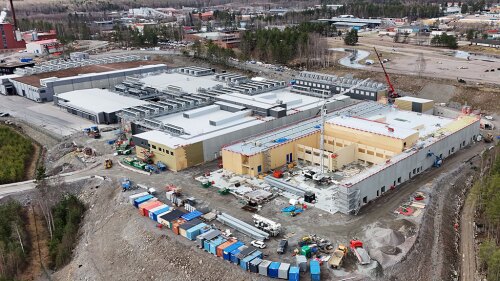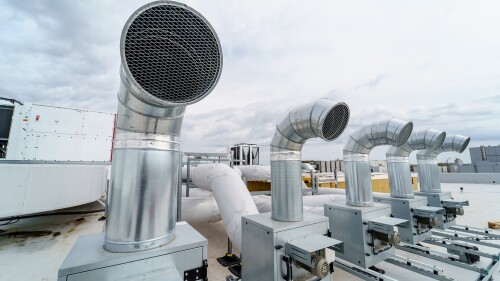In an appearance at the 2014 ULI Fall Meeting in New York City, the head of the nation’s biggest bank talked about resilience—both the U.S. economy’s and his own, in the face of a bout with cancer.
“I wouldn’t call it courage,” said Jamie Dimon, the 58-year-old chairman and chief executive of JPMorgan Chase and Co., a financial institution with $2.52 trillion in total assets, who announced in July that he had been diagnosed with throat cancer and would be undergoing treatment at Memorial Sloan Kettering Cancer Center in New York City. “You have no friggin’ choice. You just have to deal with it, one step after another.”
Dimon appeared robust, considering an ordeal that he admitted “knocks the hell out of you.” The executive, who has been at the helm of JPMorgan Chase for a decade—longer than any other major bank leader—said his family’s support, coupled with his own will, enabled him to persevere through what he calls a “terrifying” experience.
“I went to work almost every day,” Dimon said, “except when I had to spend a whole day at the hospital.” He slept on a couch in his office for several hours at a time, when his duties became too fatiguing for someone drained by the effects of cancer therapy. “The prognosis is very good,” Dimon said.
He was similarly optimistic about the resilience of the U.S. economy, despite recent stock market volatility due to fears that domestic growth might be stalled by a European slowdown.
“The corporate sector is in great shape; real estate is in good shape,” Dimon explained. “Small businesses are in better shape . . . home prices are up, and houses are in short supply in some markets.” He also was confident that consumer debt was under control. In addition, while consumers sometimes still have more trouble obtaining credit than is justifiable, he described capital markets as “wide open” for business borrowers.
“There’s no real weak spot here,” he said. “So in my opinion, the economy is going to chug along at two, two-and-a-half percent [growth]. It should be more.”
Dimon said the U.S. economy would grow faster, if Congress enacted immigration reform. “If the McCain-Schumer bill had been passed, we’d have 0.5 percent additional growth,” he said. “Over ten years, that would solve all our problems.”
But Dimon said he feels that the long-term U.S. prospects are bright, insisting that the nation “has the best hand that it’s ever been dealt.”
“Science and technology and innovation are still strong,” Dimon said. “We always try to make things better or quicker. That’s not true around the world.” He said that continual productivity gains from innovation constituted a pattern “embedded in the U.S. economy.”
Dimon also was optimistic about the long-term prospects for China, noting that the country has $4 trillion in the bank, mostly in U.S. Treasury securities, to cushion itself and reinvest in businesses. But he noted that the Chinese needed to make more progress in dealing with problems such as corruption and the domination of some markets by inefficient state-controlled enterprises.
Dimon, who has tripled the value of JPMorgan Chase during his tenure and managed to guide the institution successfully through the Wall Street meltdown of the late 2000s, is widely regarded as one of the nation’s superstar corporate leaders. But as readily noted in a career summary that was handed out to attendees, his career also has been rocked by controversies. Dimon was criticized and received a pay cut after a trader lost billions of dollars in the 2012 “London Whale” scandal, even though the bank remained profitable. In 2013, he was faced with a revolt by shareholders who wanted to split the chairman position. But Dimon ultimately defeated that challenge, and in January 2014, his board gave him a $20 million raise. He also has had to deal with a recent massive data breach by hackers.
Last week, JPMorgan Chase reported profits of $5.6 billion, or $1.36 per share, compared with a loss of $380 million, or 17 cents per share, in the same period a year ago. Analysts were expecting slightly higher earnings of $1.38 per share, according to the Associated Press.
Dimon was interviewed by William J. Ferguson, chairman and chief executive of Ferguson Partners, in a session with the theme of “reflections on resilient leadership.”





